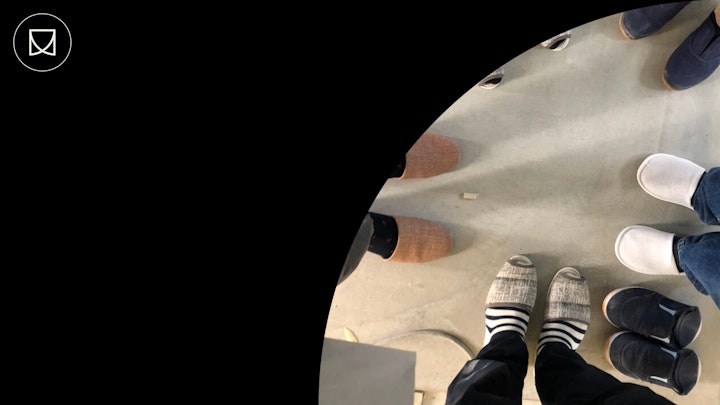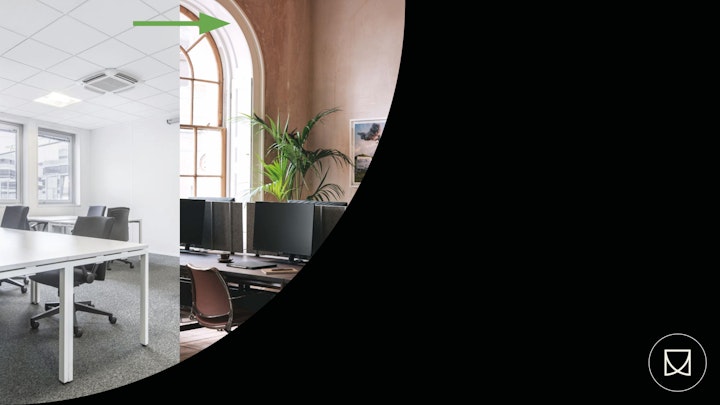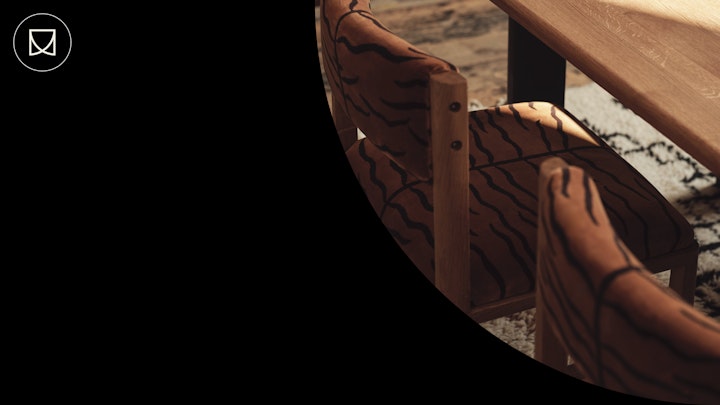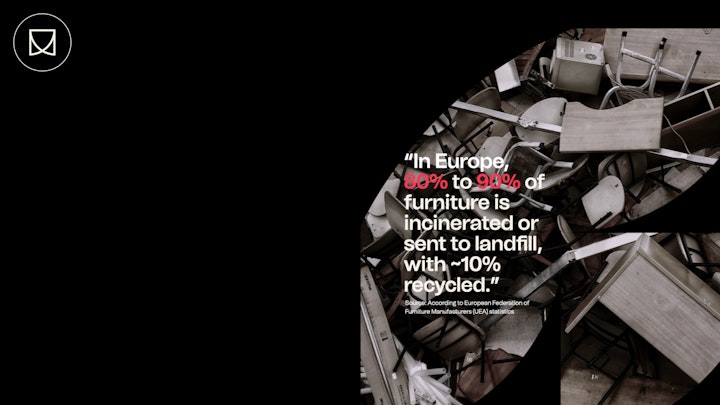𝗜𝘀 "𝗛𝗼𝘁𝗲𝗹𝗶𝗳𝗶𝗰𝗮𝘁𝗶𝗼𝗻" 𝗥𝗲𝘃𝗼𝗹𝘂𝘁𝗶𝗼𝗻𝗮𝗿𝘆 𝗼𝗿 𝗝𝘂𝘀𝘁 𝗔𝗻𝗼𝘁𝗵𝗲𝗿 𝗙𝗮𝗻𝗰𝘆 𝗧𝗲𝗿𝗺? 🏨
"Hotelification" is the latest buzzword in workplace design, where offices are transformed into less office-like spaces.
My Wednesday morning question:
𝗜𝘀 𝗶𝘁 𝘁𝗿𝘂𝗹𝘆 𝗶𝗻𝗻𝗼𝘃𝗮𝘁𝗶𝘃𝗲, 𝗼𝗿 𝗷𝘂𝘀𝘁 𝗮 𝗰𝗹𝗲𝘃𝗲𝗿 𝘁𝗲𝗿𝗺 𝘂𝘀𝗲𝗱 𝘁𝗼 𝗵𝗲𝗹𝗽 𝘁𝗵𝗲 𝗼𝗳𝗳𝗶𝗰𝗲 𝗺𝗮𝗿𝗸𝗲𝘁 𝗰𝗼𝗽𝗲 𝘄𝗶𝘁𝗵 𝗵𝗶𝗴𝗵 𝘃𝗮𝗰𝗮𝗻𝗰𝘆 𝗿𝗮𝘁𝗲𝘀?
The headline from a recent New York Times article on “The Hotelification of Offices”:
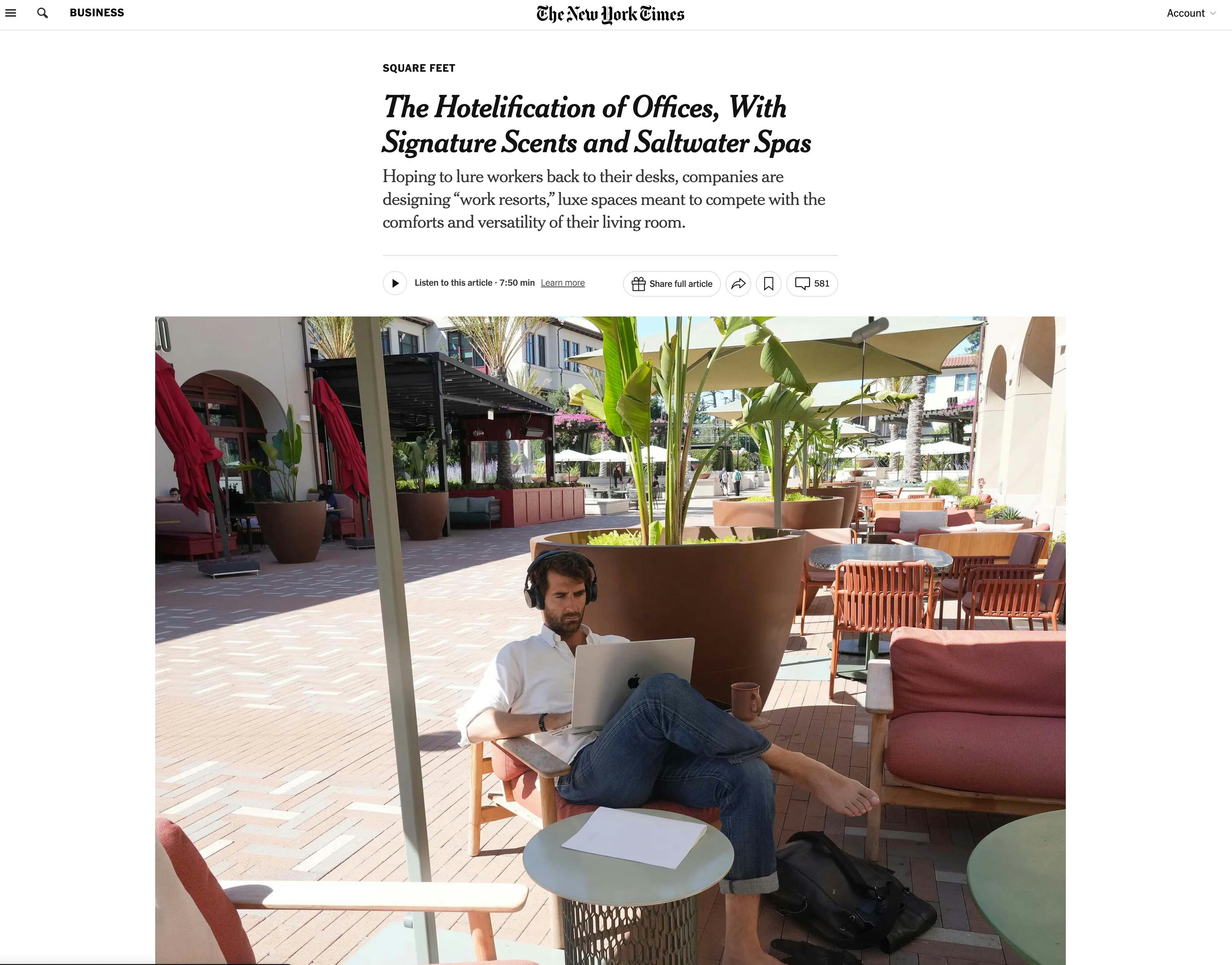
“𝘏𝘰𝘱𝘪𝘯𝘨 𝘵𝘰 𝘭𝘶𝘳𝘦 𝘸𝘰𝘳𝘬𝘦𝘳𝘴 𝘣𝘢𝘤𝘬 𝘵𝘰 𝘵𝘩𝘦𝘪𝘳 𝘥𝘦𝘴𝘬𝘴, 𝘤𝘰𝘮𝘱𝘢𝘯𝘪𝘦𝘴 𝘢𝘳𝘦 𝘥𝘦𝘴𝘪𝘨𝘯𝘪𝘯𝘨 ‘𝘸𝘰𝘳𝘬 𝘳𝘦𝘴𝘰𝘳𝘵𝘴,’ 𝘭𝘶𝘹𝘦 𝘴𝘱𝘢𝘤𝘦𝘴 𝘮𝘦𝘢𝘯𝘵 𝘵𝘰 𝘤𝘰𝘮𝘱𝘦𝘵𝘦 𝘸𝘪𝘵𝘩 𝘵𝘩𝘦 𝘤𝘰𝘮𝘧𝘰𝘳𝘵𝘴 𝘢𝘯𝘥 𝘷𝘦𝘳𝘴𝘢𝘵𝘪𝘭𝘪𝘵𝘺 𝘰𝘧 𝘵𝘩𝘦𝘪𝘳 𝘭𝘪𝘷𝘪𝘯𝘨 𝘳𝘰𝘰𝘮.”
New York Times
Here’s the glaring issue with that statement: "𝘏𝘰𝘱𝘪𝘯𝘨 𝘵𝘰 𝘭𝘶𝘳𝘦 𝘸𝘰𝘳𝘬𝘦𝘳𝘴 𝘣𝘢𝘤𝘬 𝘵𝘰 𝘵𝘩𝘦𝘪𝘳 𝘥𝘦𝘴𝘬𝘴..." 🧐
𝗧𝗵𝗶𝘀 𝗶𝗺𝗽𝗹𝗶𝗲𝘀 𝘁𝗵𝗮𝘁 𝘄𝗲 𝘄𝗮𝗻𝘁 𝗽𝗲𝗼𝗽𝗹𝗲 𝗯𝗮𝗰𝗸 𝗮𝘁 𝘁𝗵𝗲𝗶𝗿 𝗱𝗲𝘀𝗸𝘀, 𝗱𝗼𝗶𝗻𝗴 𝘁𝗵𝗲 𝘀𝗮𝗺𝗲 𝗼𝗹𝗱 𝘀𝘁𝘂𝗳𝗳. Not to mention the backlash to the recent news of Amazon's desire to have their staff back in the office 5 days a week.
It appears battle lines have been drawn.
Back to the Forbes statement, it reflects a traditional mindset that assumes work requires a desk. I believe terms like "Hotelification" have emerged to justify why we would have any additional amenity in an office.
But is this concept new?
During the early days with WeWork, we embraced the idea of creating a "home away from home" in the workplace.
🍻 Having a beer tap in the kitchen wasn’t just a novel gimmick. It was part of an amenity stack designed to challenge the cold, sterile, grey, and boring single-use traditional office designs.
We didn’t just want to offer desks; we aimed to build communities and create experiences. 🚀
Fast-forward a decade, and that’s precisely what terms like "Hotelification" aim to achieve.
Now more than ever, we need to ensure that the spaces we create truly foster connection, productivity and collaboration, not just mimic the comforts of home. We've been there already.
So, what do you think? Is "Hotelification" just a fancy term, or is it genuinely reshaping how we think about the office?
Ping me a message and let me know your thoughts
Thanks for reading


